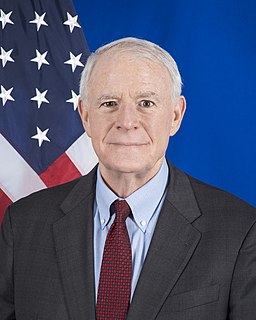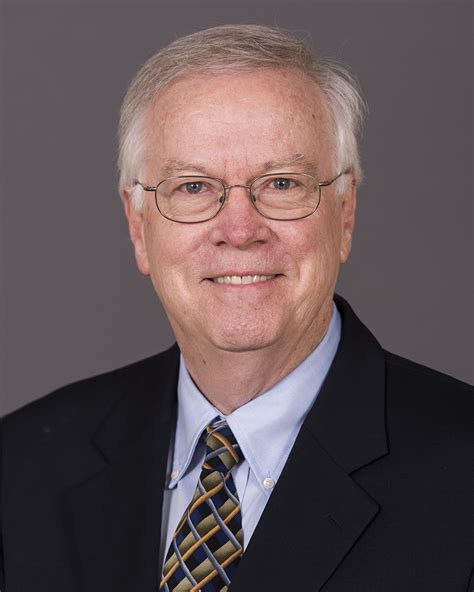A Quote by Agapi Stassinopoulos
We worry so much in this culture about being happy. The pursuit of happiness is even written in our Constitution. It's an erroneous concept because we are emotional, thinking beings that are constantly affected by a hundred things around us and inside us.
Related Quotes
Emotional dependence is the opposite of emotional strength. It means needing to have others to survive, wanting others to "do it for us," and depending on others to give us our self-image, make our decisions, and take care of us financially. When we are emotionally dependent, we look to others for our happiness, our concept of "self," and our emotional well-being. Such vulnerability necessitates a search for and dependence on outer support for a sense of our own worth.
We all have direct experience with things that do or don't make us happy, we all have friends, therapists, cabdrivers, and talk-show hosts who tell us about things that will or won't make us happy, and yet, despite all this practice and all this coaching, our search for happiness often culminates in a stinky mess. We expect the next car, the next house, or the next promotion to make us happy even though the last ones didn't and even though others keep telling us that the next ones won't.
Social media puts us inside our phones and our computers and our headphones, and we're not connecting so much with our outside environment. Even when people go to the Grand Canyon they're more concerned about the selfies than actually looking at the canyon. I see it with my own kids - the addiction to needing things fast, never pausing to just see what's around us and connect with our fellow human beings in real time.
In our concern for others, we worry less about ourselves. When we worry less about ourselves an experience of our own suffering is less intense. What does this tell us? Firstly, because our every action has a universal dimension, a potential impact on others' happiness, ethics are necessary as a means to ensure that we do not harm others. Secondly, it tells us that genuine happiness consists in those spiritual qualities of love, compassion, patience, tolerance and forgiveness and so on. For it is these which provide both for our happiness and others' happiness.
I had always been taught that the pursuit of happiness was my natural (even national) birthright. It is the emotional trademark of my culture to seek happiness. Not just any kind of happiness, either, but profound happiness, even soaring happiness. And what could possibly bring a person more soaring happiness than romantic love.
I have learned from experience that happiness is an acquired skill. Children are one of the greatest lessons in happiness, constantly challenging us to enjoy the moment, as the next one will not be the same. Gratitude is essential to happiness. Every time our children rush up to us and smile, we have something to be happy about; every time we get out of bed and can take a deep breath and go out for a walk, we have something to be happy about-that is the essence of a happy existence. Happiness is a muscle we must use, or it will wither away.
When you make that transition to being a head coach, there's so much more you have to think of and consider. You're constantly thinking, 'How does this impact our culture? How does this impact us two, three steps down the road?' It's thinking big picture, and all of those things come with time. It's a great challenge.
The concept of individual rights is so prodigious a feat of political thinking that few men grasp it fully - and two hundred years have not been enough for other countries to understand it. But this is the concept to which we owe our lives - the concept which made it possible for us to bring into reality everything of value that any of us did or will achieve or experience.
As we live our human lives, let us be like the water. Let us be conscious of the flow. Let us not forget the great ground of being that draws us on through life. Let us live in a knowing hope, aware that all being is in transition, that all movement is back to the source. Let us treat those around us as reminders of our illusionary individuality. We know that they are us and we are them connected in ways we cannot fathom. Let us grow in compassion for all beings, for they share our journey.
All around the country, individuals are choosing to redefine their lives and the pursuit of happiness in ways much closer to the original notion put forth by our Founding Fathers. Their notion of the "pursuit of happiness" wasn't just about acquiring money and power, but about doing your part to add to the civic happiness of the community.
What is earthly happiness? that phantom of which we hear so much, and see so little; whose promises are constantly given and constantly broken, but as constantly believed; that cheats us with the sound instead of the substance, and with the blossom instead of the fruit. Like Juno, she is a goddess in pursuit, but a cloud in possession.
In the consumer culture of marriage, commitments last as long as the other person is meeting our needs. We still believe in commitment, because we know that committed relationships are good for us, but powerful voices coming from inside and outside tell us that we are suckers if we settle for less than we think we need and deserve in our marriage. Most baby boomers and their offspring carry in our heads the internalized voice of the consumer culture-to encourage us to stop working so hard or to get out of a marriage that is not meeting our current emotional needs.
































